

How to Recognize If You Have Gambling Addiction
Collaborative Insights, Trusted Expertise
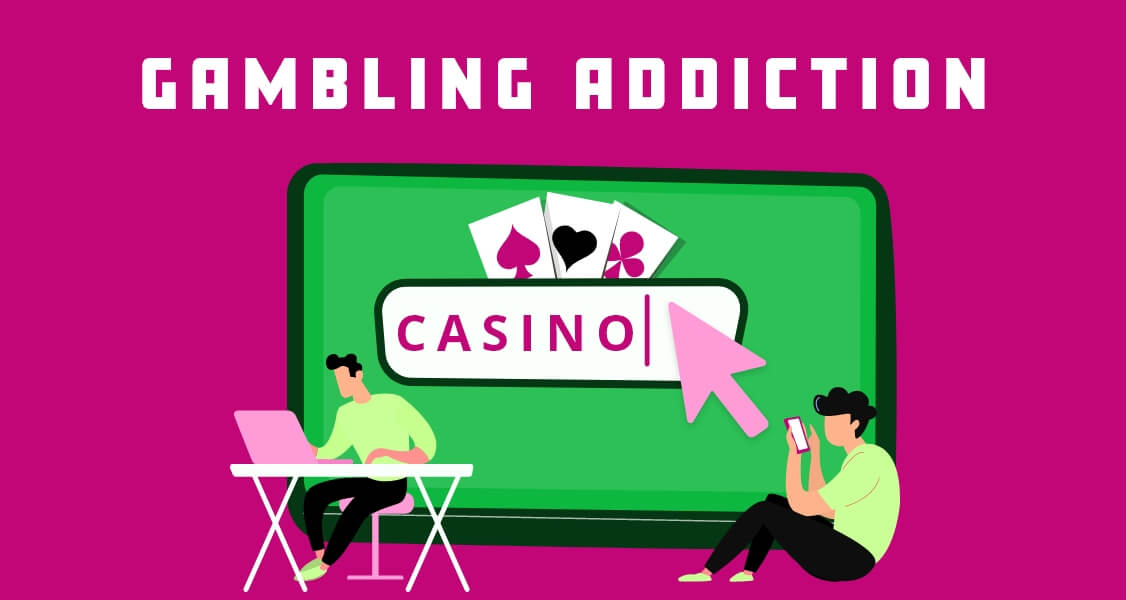
Here at NonStopBonus, one of our core values is to help stop the compulsive gambling phenomenon and raise addiction awareness. According to Gamblers Anonymous, compulsive gambling affects between 0.2 and 5.3% of adults in the world.
Fortunately, it is not that hard to find out if you or someone you care about has a gambling problem by following some simple advice offered by the experts from Gamblers Anonymous and begambleaware.org.
Gambling addiction types
-
Social Gamblers - There are two types of social gamblers, casual social players and serious social gamblers.
The first category only gambles rarely and sees gambling as a light form of entertainment perfectly integrating it among other numerous hobbies and interests. This category is less likely to develop a problem.
Serious social gamblers, on the other hand, have more chances of developing an addiction because they see gambling as the only source of entertainment.
-
Antisocial Habits - Gamblers that present an antisocial personality disorder will most likely have a track record of unlawful actions and will often try to cheat or fix bets, wagers, and other illegal actions revolving around gambling.
-
Professional Players - This is one of the most dangerous types of gamblers with a problem because most of them will not even want to take into consideration the possibility they might be dealing with addiction.
They consider themselves professional gamblers and will often try to make a living out of this activity.
-
Relief and Escape - A very vulnerable category of players that seeks gambling to avoid stress, anxiety, loneliness or to deal with other more severe feelings like anger or depression.
Even if the problem, in this case, is emotional, these types of gamblers show a bit more control than regular compulsive gamblers.
-
Compulsive Gamblers - Also called pathologic gamblers, these players show the most serious form of addiction. They usually lose any form of self-control and if the gambling addiction was present long enough, others will follow, like alcohol or drug addiction.
Recognize pathological gambling behavior
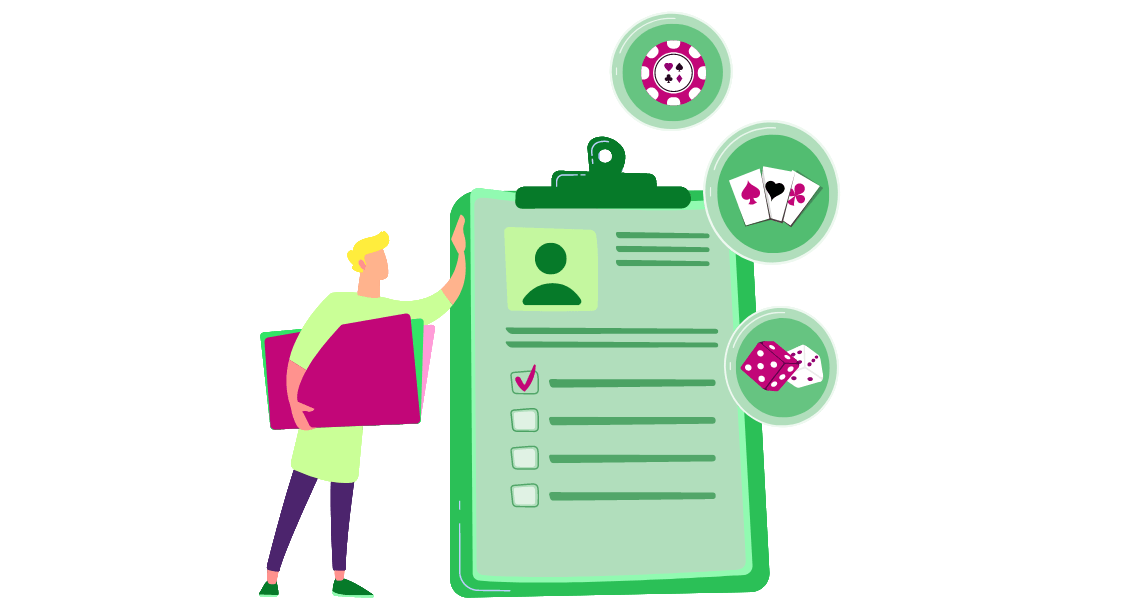
According to a study conducted at the Indian Journal of Psychological Medicine by the Indian Psychiatric Society South Zonal Branch, there are some criteria that a compulsive gambler shows.
As this study suggests, if an individual meets 5 or more of these criteria, he most likely suffers from a form of gambling addiction and should turn towards specialized help.
-
Preoccupation - The mind of the subject keeps revolving around gambling in a form or another, past or present experiences or future fantasies.
-
Tolerance - In time, the need to gamble increases, just like with any other drug, and the patient requires increased “doses” to experience the same thrill or satisfaction
-
Withdrawal - Just like in the case of any other addiction, individuals suffering from gambling addiction will often show irritability and restlessness when they stop gambling.
-
Relief - The subject gambles to prevent certain feelings like anxiety, loneliness or to relieve stress.
-
Win Back - A problematic gambler will often chase a losing streak in an attempt to win back the losses and will most likely risk even more by raising the wagers.
-
Lying - The subject will often minimalize the time or the money invested in gambling when talking to family or friends or deny it entirely in some cases.
-
Lack of control - Unsuccessful attempts to stop gambling or cut down the intensity
-
Crimes - A pathological gambler will often try to cheat or will break the law to obtain money for either future sessions or to fill a losing gap.
-
Shifted Priorities - The subject will risk personal or professional relationships to gamble and will show little concern regarding the consequences of his actions.
-
Bailout - A problem gambler will often turn towards the closed ones or some other third parties, even shady individuals for money.
-
Biological bases - This matter is quite complex because, after a study conducted by the Illinois Institute for Addiction Recovery Recent, a compulsive gambler may show a lack of norepinephrine, similar to chemical addicts.
DID YOU KNOW?
In a study, conducted by the National Institute on Alcohol Abuse and Alcoholism, a compulsive gambler will engage in these activities to make up for the lack of norepinephrine, which is normally secreted under thrill, arousal, or stress
Problem gambling triggers
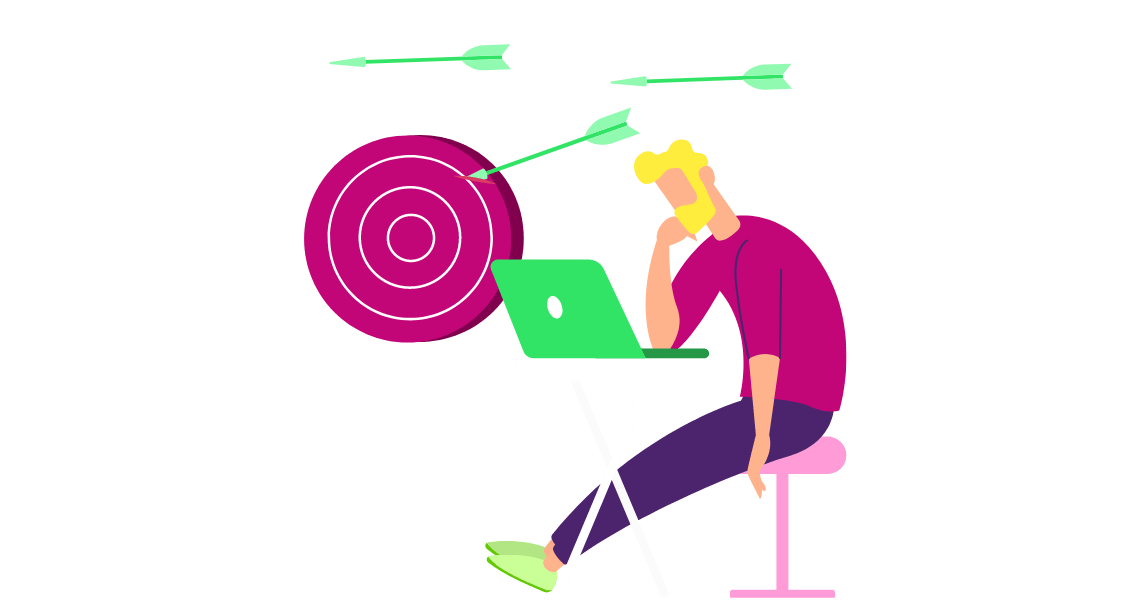
Gambling addiction is developed over time and most players showing symptoms of compulsive gambling were considered responsible individuals.
But how does an individual go from a casual gambler to a compulsive player? According to an article on medicalnewstoday.com, many triggers can lead to a change in behavior like:
-
Traumatic experiences
-
Work-related stress
-
Social and environmental factors
-
The presence of another addiction
Studies show that an individual with a tendency to one addiction will be more at risk of developing more and compulsive gambling is often associated with other problems like alcohol or drugs.
In addition to the main triggers shown above, some other factors have also been shown to present a risk for gamblers like:
-
The use of certain drugs like antipsychotic medications or dopamine
-
Gender - There are more men affected by gambling addiction than women
-
Personality disorders
Harmful effects of gambling
Gambling addiction does not affect the subject in just one sector of his life and more often than not it can extend to affect even close ones like family and friends.
-
Finances - This is the first sector affected because when a gambler loses control, he tends to gamble more, risking money that he does not possess without any concern for consequences. This may lead to large debts that become bigger and bigger as the gambler chases down losing streaks only growing the debt pool.
-
Mental Health - This is the second sector affected as it tends to follow the money problems closely. As the gambling problem becomes worse and the debts become larger, anxiety, stress, loneliness, and depression will soon follow.
-
Relationships - Unfortunately, even loved ones suffer when gambling addiction shows up. Even if usually the first relationships affected are work-related or rather distant, as the problem aggravates, the circle tightens up to the ones in proximity.
How to treat a gambling addiction
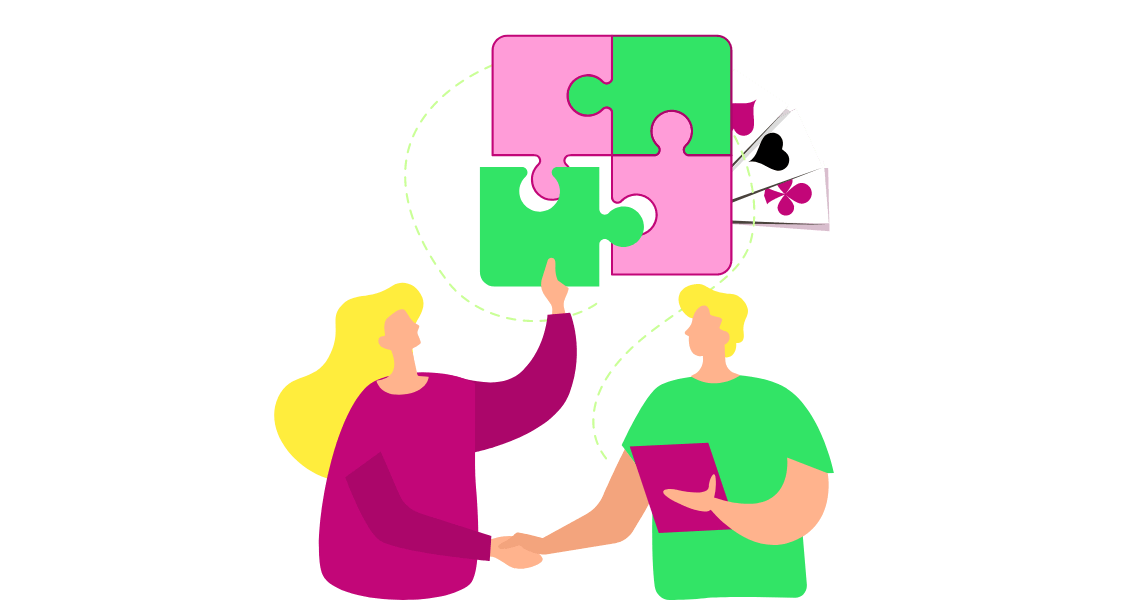
Depending on the situation and how serious the gambling addiction is, there are a couple of tricks that any gambler can use to minimize the ill effects and start the road to rehab. Here are a couple of tips and tricks to help you out provided by the experts at ncbi.nlm.nih.gov.
1. Admit you have a problem - No problem can be solved until it is faced and the first road to rehab is acceptance.
2. Get support - There is no shame in asking or accepting help. One of the aspects that can make things worse in gambling problems is self-isolation and the refusal of help. You can try to reach out for help by going to a Gamblers Anonymous meeting.
3. Avoid temptation - Surely, the power of habit applies everywhere, but even if it is hard, you need to make an effort and stay away from temptation. You can use various tools like self-exclusion to keep temptations at bay.
4. Replace gambling with something positive - Besides postponing your gambling sessions, you can also replace them with another interest or hobby. You will still get excitement from doing what you love while also feeling good about yourself for making progress.
5. Seek professional help - If you feel you can’t do it alone, or the problem has got out of hand, you can reach for an organization like Gamblers' Anonymous (GA) which may recommend therapy and counseling besides other experts advice.
How to deal with a loved one’s gambling addiction
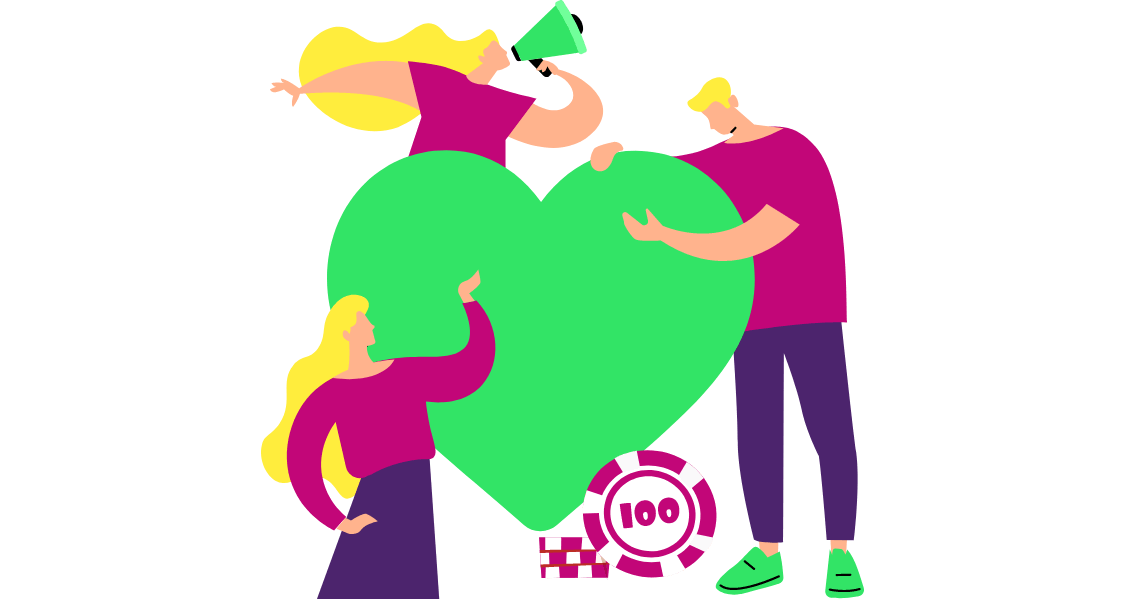 If you believe that someone you care about has a gambling problem or you know that for sure, there are a couple of challenges you will have to face and some steps that need to be made to minimize its negative impact on your life.
If you believe that someone you care about has a gambling problem or you know that for sure, there are a couple of challenges you will have to face and some steps that need to be made to minimize its negative impact on your life.
Compulsive gambling can get in the way of education, work, it can bring mental and physical harm, it can damage the reputation, and cause social distancing. Unfortunately, most of these ill effects can quickly spread and affect relationships with family and friends.
The most common problems that may affect a relationship are:
-
Money - Big losses, debts piling up, savings gone, and in the worst scenarios even property losses and personal belongings may be lost. This kind of crisis can quickly bring a relationship to its knees.
-
Emotional Issues - An individual affected by gambling addiction will isolate himself, especially if social stigma or self-stigma appears. Feelings of shame, hurt, fear and even anger or confusion may drive the individual further away from the beloved ones, making the rehabilitation process more difficult.
-
Physical and Mental Health - If compulsive gambling is not solved quickly, the effects will escalate causing problems like anxiety, depression, sleep-related issues, ulcers, extreme headaches, and muscle pains.
Besides the problems above, there is another major one that may appear, the suicide risk. Even if this is an extreme manifestation, it affects quite a large number of gamblers and if your beloved one shows signs of suicidal thoughts, you should contact specialized help immediately.
The rest of the problems don’t have a straight answer. Each family is different and depending on how serious the gambling problem is, the efforts needed could vary a lot.
IMPORTANT
All the info you read here are just general guidelines. If you or your loved one has a gambling problem, the recovering process should be done under specialized supervision.
Stigma and self-stigma influence on compulsive gamblers
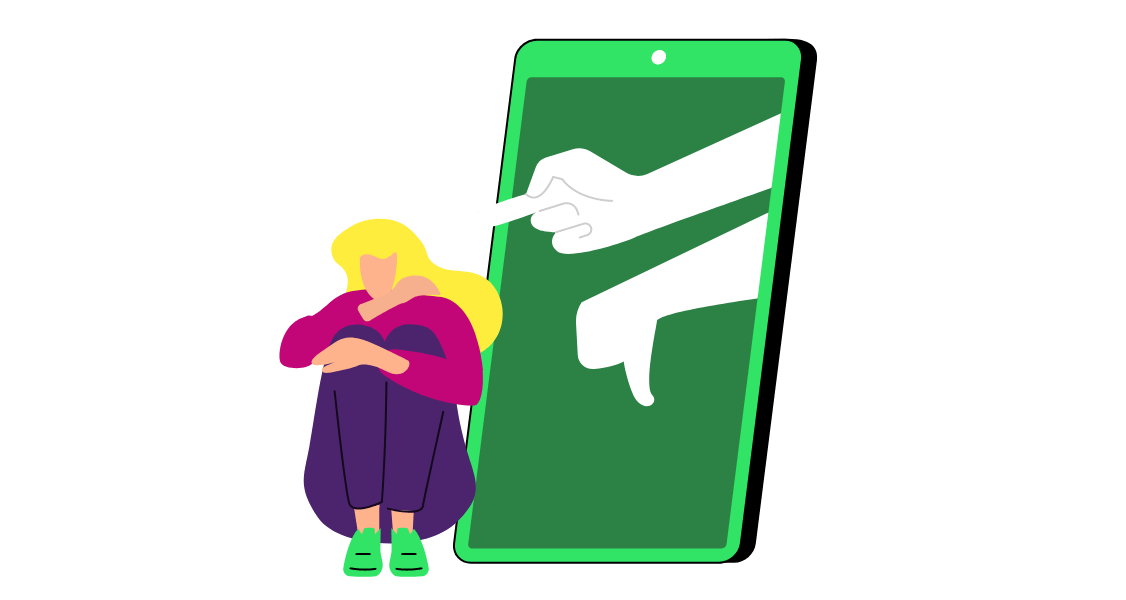
Stigma can be simply defined as a deeply discrediting attribute that affects an individual tainting his image and leading to the devaluation of his social identity. Up until recently, little was known about the stigma associated with gambling disorder, and the first study on the matter was published on tandfoline.com.
In the study, there were 44 being interviewed, 28 males, 16 females, and the ethnic background included Indian, Serbian, Asian, Greek, English, and Australian.
All the participants were prior informed and the process took place by telephone lasting roughly between 30-60 minutes. The conversations were digitally recorded and transcribed later to be verified.
The analysis process took into consideration interpretative phenomenological data to reveal insights on how the individual subjects understood the studied phenomenon. A second researcher reviewed the transcripts to ensure the trustworthiness of the interpretation.
As expected, the results were not that great for either one of the problem gamblers. As the study suggests, gamblers that wear the stigma show signs of lowered self-esteem, eroded self-efficacy, shame, and even physical health problems.
The bottom line
It might not be easy to recognize that you have a gambling problem, but it is simple and once you acknowledge the issue, there are many different ways to get help. The process one must go through to fix the issue can be long and will require you to be fully dedicated.
That’s why it’s super important to practice Safe gambling and make sure that you are ok at all times. If you have any doubts, consult our Stay in Control page, or if you feel like things are completely getting out of hand contact a specialist. They are the most prepared to help you with your gambling problem.
It’s easier to prevent than to treat so always practice responsible gambling and know when to take breaks or stop altogether before it’s too late.
